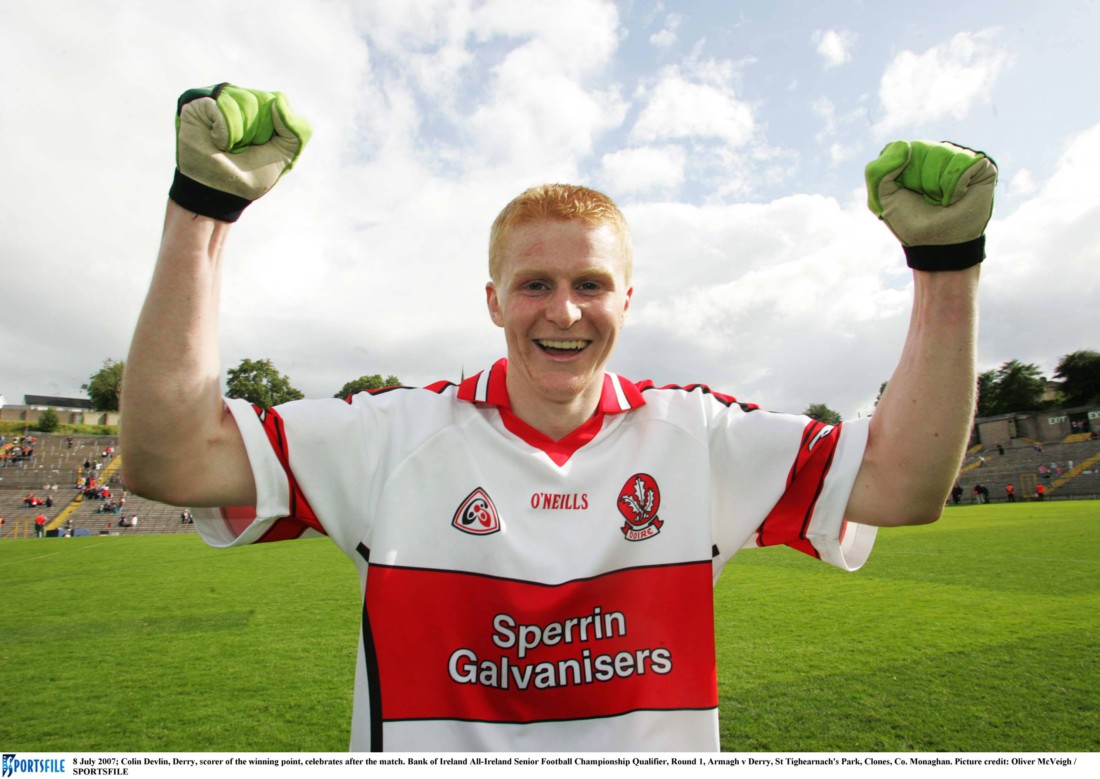FORMER Derry forward Collie Devlin says that the GAA must do something to deal with the commitment levels expected from county players as he fears the demands are getting out of control.
Devlin played for his county for a decade, from the mid-2000s to the mid-2010s. He stopped playing in 2009 but returned in 2013 and it was that departure that made him realise that the standards expected from footballers had leapt dramatically.
“When I played I committed 100 percent. But 100 percent when I was playing was training Tuesday night, training Thursday night and a match at the weekend, you had homework to do as well.
“When I came back it was like we had leaped forward in time. We had training session to be in Owenbeg five days a week. That was some change from the few years before. That was even behind other counties. Take that level and commitment and try to convince boys to do that if they are the 15th best team in the county.”
Devlin reckons that the change started in the capital city.
“Dublin took it to a new level, Donegal copied for a season and did well but couldn’t sustain it.
“I remember back when Dublin training at six o’clock in the morning was the new buzz. And teams training twice a day, not just every day. I remember raising the eyes and thinking ‘is this the way that it is going?’”
Devlin made the decision at the end of 2013 to no longer take part because the commitment was too great. He had a family and work was getting busier. He believes that going forward it will be harder to make players want to commit to that lifestyle of full-time training for an amateur sport because the rewards aren’t there.
“It’s like professional teams, but those teams have a wage. Those players try to do their best but they are getting a wage. Doing well is their achievement. But if a county team doesn’t win something then they are regarded as a failure. You get doom and gloom and get ridiculed. That will grow on young lads, and they will ask themselves ‘what is the point?’
“Then they see their mates away wherever, the States or Australia, and they will want to be away doing that. There are so many more young ones who want to go away.
“There are so many more distractions to take players away. All the reasons to pull you away from committing to football are outweighing the reasons to keep you in it.”
Devlin said that evidence of how teams have changed can be seen in the lack of experienced men on teams.
When Devlin was on the Derry team in 2013 he noticed that the intensity of training had increased. He was 28, and Eoin Bradley was a year older, and Patsy Bradley and Gerard O’Kane were in their late 20s.
“It is a big issue and it needs resolved. I don’t know what the answer is. There has to be a solution. We have let ourselves take the game too professionally without it going actually professional. We don’t want the game to go professional but it’s hard to do that without putting big restrictions on teams.”
See next week’s Gaelic Life to read a feature interview with Collie Devlin as he talks about his career with Derry, and he explains why he loved playing football for his county but why he will never say that he enjoyed it.
Receive quality journalism wherever you are, on any device. Keep up to date from the comfort of your own home with a digital subscription.
Any time | Any place | Anywhere












